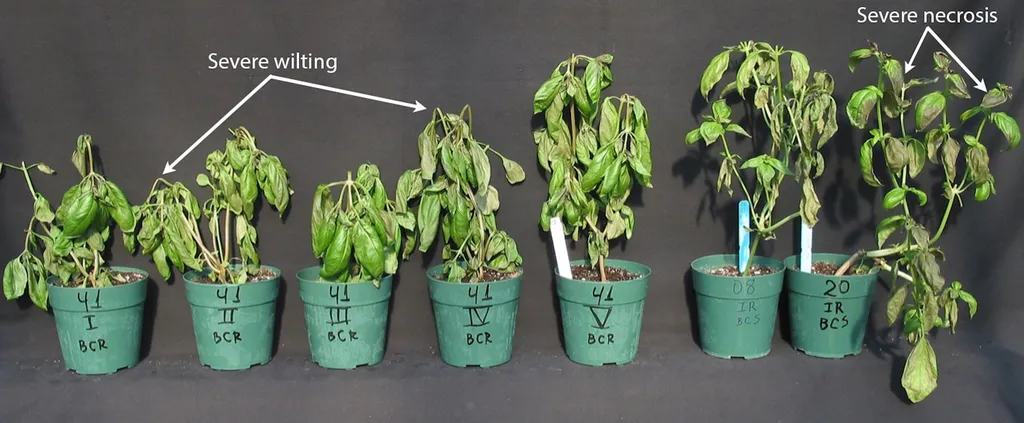In the quest for natural solutions to enhance food stability and address health concerns, researchers have turned to an unlikely source: the by-products of sweet basil hydrodistillation. A recent study published in *Frontiers in Sustainable Food Systems* reveals that these by-products could hold the key to extending the shelf life of edible oils and even combating hyperlipidemia, a significant risk factor for cardiovascular diseases.
The study, led by Amani Tayebi from the Laboratory of Bioresources, Biotechnologies, Ethnopharmacology and Health at Mohamed I University in Oujda, Morocco, focused on the aqueous extract of sweet basil (Ocimum basilicum L.) obtained during the hydrodistillation process. This extract, rich in polyphenols and flavonoids, demonstrated robust antioxidant properties, effectively stabilizing refined soybean oil (RSO) under both accelerated storage conditions and frying.
“Our findings indicate that the basil extract not only preserves the quality of the oil but also outperforms synthetic antioxidants like BHA,” Tayebi explained. The extract’s ability to reduce oxidative degradation and preserve α-tocopherol, a vital antioxidant in soybean oil, suggests a promising natural alternative to synthetic additives.
The implications for the agriculture sector are substantial. As consumer demand for natural and healthy food products continues to grow, the use of plant-based antioxidants could revolutionize the food industry. Farmers and agribusinesses could potentially diversify their revenue streams by leveraging the by-products of essential oil production, such as those from sweet basil, to create value-added products like fortified edible oils.
Beyond food stability, the study also explored the potential health benefits of the fortified oil. In a hyperlipidemic mouse model, the fortified RSO significantly lowered plasma total cholesterol (TC), triglycerides (TG), and glucose levels, while also reducing low-density lipoprotein cholesterol (LDL-C) and increasing high-density lipoprotein cholesterol (HDL-C). This dual functionality—extending food shelf life and promoting health—positions the basil extract as a versatile and valuable resource.
The research opens new avenues for the agriculture sector to explore sustainable and profitable uses for plant by-products. As the global food supply chain increasingly prioritizes natural and health-conscious products, innovations like this could drive significant commercial impacts. By integrating such natural antioxidants into food production, the industry can meet consumer demands while promoting environmental sustainability and health benefits.
This study not only highlights the potential of sweet basil by-products but also underscores the broader possibilities for utilizing plant-based compounds in food science. As researchers continue to uncover the multifaceted benefits of these natural resources, the agriculture sector stands to gain from both economic and environmental perspectives. The future of food stability and health promotion may well lie in the innovative use of plant by-products, paving the way for a more sustainable and health-conscious food industry.

